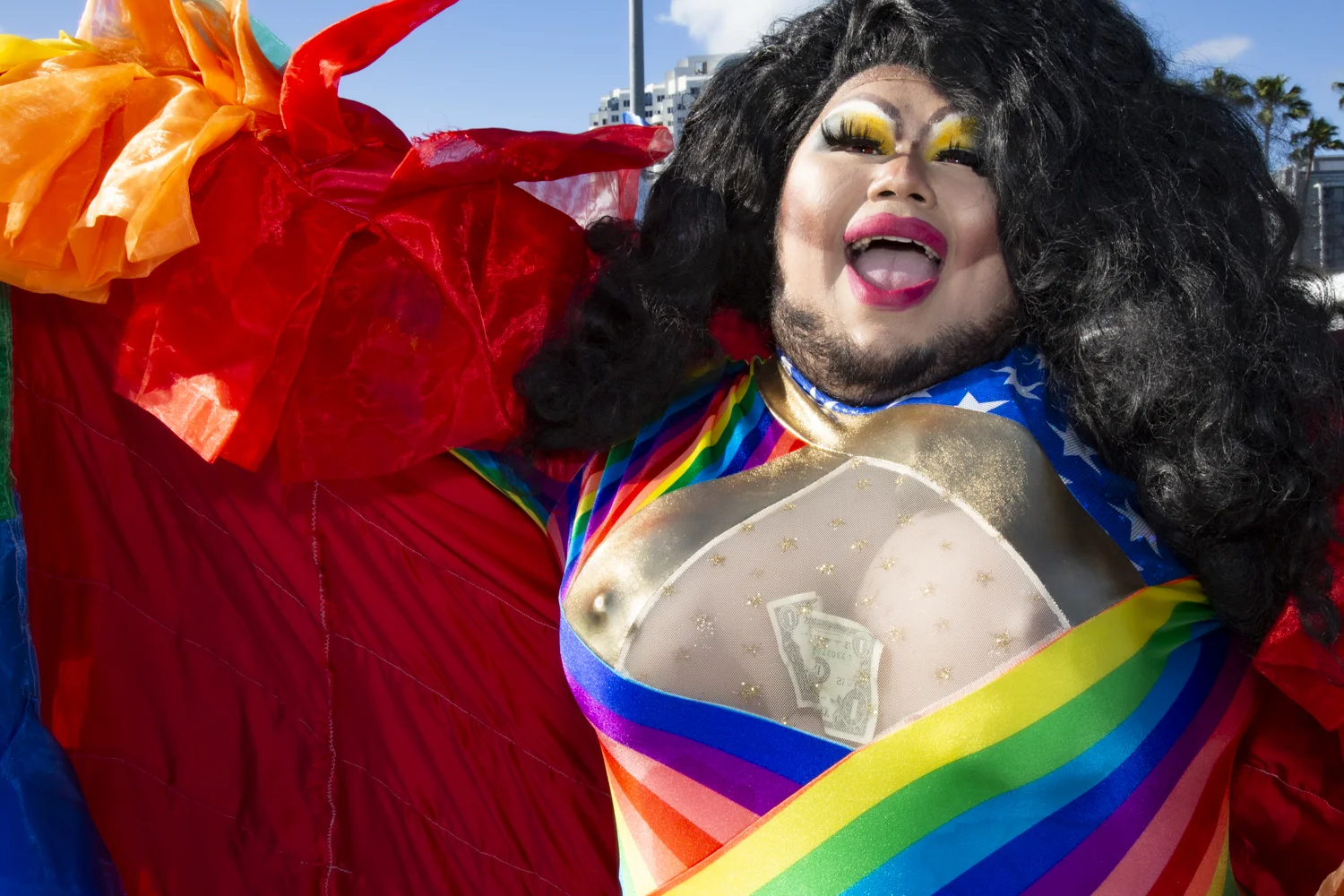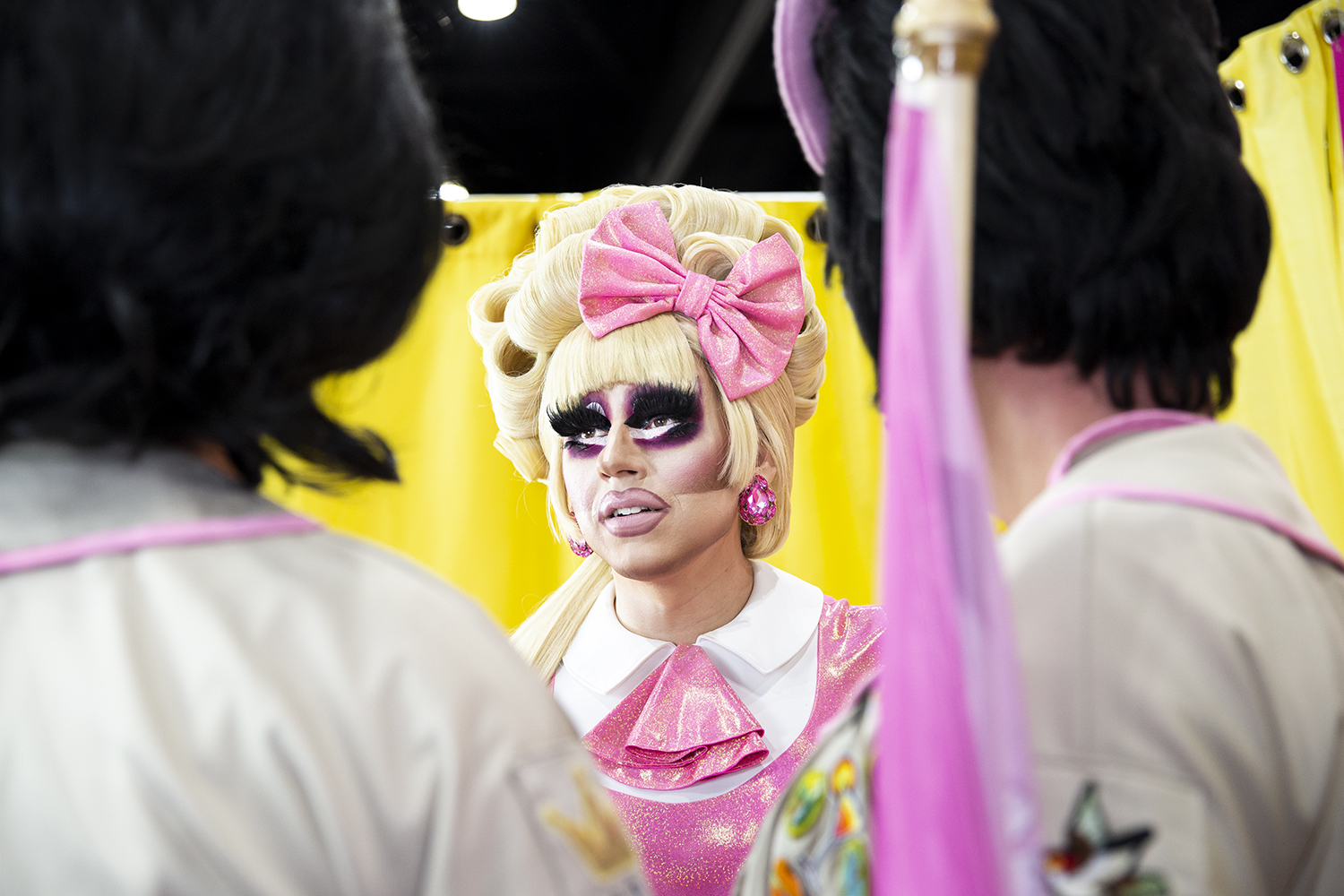Celebrating Stonewall 50
© Wednesday Aja
By Kala Herh
The year 1969 was monumental on many accounts. President Nixon withdrew 25,000 U.S. troops from Vietnam. The first color pictures of Earth were transmitted by Apollo 10. The Beatles’ reached number one with their song, “Get Back.” And for three days gay rights activists confronted the police with fists, stones, and conviction in what would later be known as the Stonewall Riots.
But the Stonewall riots were more than just a fight — they were a symbolic act of force for the gay rights movement. In a nutshell, these few days kickstarted the modern movement we know today. Because of unsung heroines, like Marsha P. Johnson and Sylvia Rivera, the powers that be started to see and hear the major community that was previously invisible. 50 years later, the LGBTQ+ community still celebrates the anniversary of the Stonewall riots in June with pride marches to draw attention to the fight for civil rights. Together they sent a strong message that the rights of LGBTQ+ individuals should be treated just like any right is in the United States. Increased representation during the late 90s (thanks to Tom Bianchi) also helped birth this steadfast empowerment. Since then, through legal victories, the LGBTQ+ community has made great strides towards equality. In the 2018 Senate race, the LGBTQ+ community formed a strong, united voting bloc. This monumental turnout helped usher a pro-equality House of Representatives and ultimately passed the Equality Act. Yet, the fight is far from over. With much of the battles still being fought with the current administration.
Candidate Trump repeatedly voiced support for the community, however, while in the White House his policies present an agenda that very much threatens LGBTQ+ rights. Earlier this year, the Trump-Pence administration announced that it would propose rules that would legalize federally funded homeless shelters to turn away transgender people. He proposed to roll back the Affordable Care Act that formerly provided health care protections for transgender people. He nominated multiple anti-LGBT judges to the courts. He refused to recognize Pride Month.
“[Trump] campaigned saying that he would be a good friend to LGBT people,” James Esseks, director of the ACLU’s LGBT and HIV Project, told Vox. “Actions speak far louder than words. And what he’s done has been a wreck.”
But out of the struggle emerges an unrelenting wave of artists: Wednesday Aja who shows the unfiltered and fearless energy of the drag scene, Una Zhu who challenges the traditional notions of femininity and masculinity; and Laurence Philomene whose works explore gender identity, tenderness and color theory that are continuing to bring awareness to the movement. There is still that same hunger for proper queer representation — on not only the Senate floor but also the media battleground as well. These artists have redefined what pride means. Pride, as it is being reworked, is not only the ability to be resilient with grace, but also to be resilient, with knowing the foundations that originated during the Stonewall Riots.
Shark, Shanghai Drag. By Una Zhu (https://www.unazhu.com/)
Portrait of Heath V Salazar (Gay Jesus), Non-Binary portraits, Toronto, 2018. By Laurence Philomene (www.laurencephilomene.com)
These artists challenge the way in which we think about pride and the precedent that was set by Stonewall. In light of the current administration's policies (read: denying healthcare benefits, rolling back protections, cutting federal funding) towards LGBTQ workers, troops, patients, Stonewall continues to be a source from which young people draw strength from. Stonewall should not just be looked at through the lens of LGBTQ+ rights — but because of its intersectionality — also through women’s rights, through black rights, through patients rights. Pride, by definition, is a reminder to support and celebrate those around us no matter what agenda the government pursues.
© Wednesday Aja











